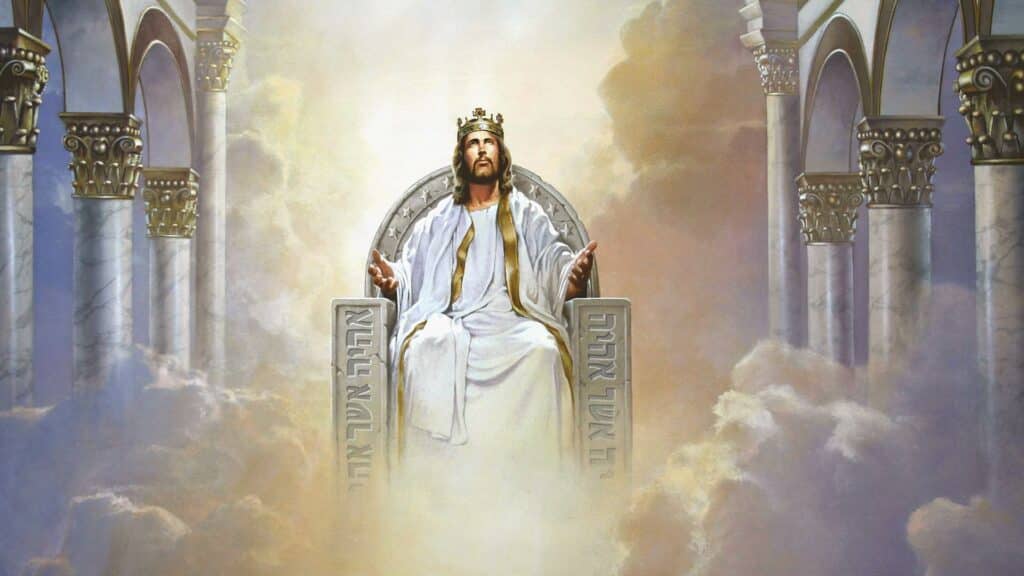Your car is going to fall apart. Your groceries will rot, your clothes are getting threadbare, and the very technology you’re using to access this will soon slow to a crawl. Everything that you acquire comes with its very own built-in expiration date: stuff doesn’t last forever. Regardless, the message of Jesus Christ–going on nearly 2,000 years old–still has many that hold to it. It’s ancient, sure, but it hasn’t expired yet. Why? Because this message, despite its age, gives a wonderful story and timeless principles, truths useful to everyone from any culture. This is a story that pushes its readers to care for others and do good to them whilst also building personal integrity. Despite all the changes we see in the world today, this message still sounds forth throughout all its history: there is a man, Jesus, out on a quest to help people better themselves, serve others, and ultimately be rescued from the current troubles we face. Even when everything else is decaying around you, the story of Jesus offers comfort and safety to any who would take the time to listen.
But how is it that we claim this message is still effective today? Surely it must have run its course of usefulness: many claim that it’s just for that culture, or for that time, or for that singular geographic area. We’re very different from those in the past, after all: what do we really share in common with them? We in America are half a world away from the region the Bible originated from; we speak a very different language, dress differently, have different modes of transportation, and so much more! If the Bible was relevant back in the first century, how could it still be useful in the twenty-first? Because Jesus—the central character of the entire Bible—doesn’t only address one particular nation, time period, or location, as is often claimed.
Jesus spent his time speaking to people from all sorts of different classes and backgrounds. The poor and disabled, the disadvantaged, social elites? Jesus has extensive contact with all of them. And, He doesn’t restrain Himself to only speaking to Jews: He spends time traveling outside of Palestine to a couple of the surrounding regions, and His followers travel all the way out to the very foreign cultures of the ancient Greek and Roman empires, preaching His message. Jesus clearly didn’t limit the message to only one country or a particular subset of people, but meant it for all humanity. So, we can argue that the message of Jesus went to many people and places, as that’s found in history. But that was 2,000 years ago: does it really still mean anything now?
We of modern times have a skewed perspective on how long things can last. And that’s not really our fault! In the last 15 years, Apple has released 34 different variations of the iPhone, and surely even more will come next year. Everything we have—especially technology—grows obsolete so quickly! Surely this decrepit old book that we’re considering can’t stay relevant with the variances of our culture in these modern times. But, do you know of things that never do grow obsolete? I’m thinking of the basic questions of life, for one.
What is our purpose? Where did humanity come from? What happens after our death? These questions are old, having existed seemingly forever, as each person must think them over and find something to believe. Jesus’ teaching is no different: all His words point toward answers to these questions, speaking of the God who created everything and works to save His people. The possible answers He provides to these eternal questions help to make His message that much more relevant.
And one more thing about that… Jesus taught in a very different way than anyone else at the time. The other Jewish teachers—the ones who taught the religious law in Jesus’ time—emphasized that law and how it was entirely tied to the Temple of their day. Their religion dealt in the physical, visible things: a temple, a group of priests, frequent sacrifices, a holy city. Unfortunately, none of these things remain, and that religion has had to remake itself into something else. Alternately, if you were to examine the Greek and Roman empires, you’d find that they placed all their emphasis on idols and temples and priests that represented their many gods: again, the vast majority of those objects no longer exist to be worshipped, and those religions are functionally extinct. Jesus, on the other hand, didn’t give a message bound to anything that could just be destroyed: His temple is His people, His followers the priests, and He Himself became the sacrifice for all. As His message continues between generations, it’s always renewing itself in them, not dying out like those others.
So, why Jesus? Because His message, preserved for us in the Bible, has always been relevant. It’s not for one race or class of person, but for anyone who would wish to hear it; the eternal questions it answers emphasize its longevity and usefulness, even today. And, since Jesus never tied His message to this Earth, it won’t rot away, unlike everything else that we have here. Why Jesus? Because His words are still ringing with the truth that no one else has ever been able to replicate.
Why Jesus? Well, you should come and see.



